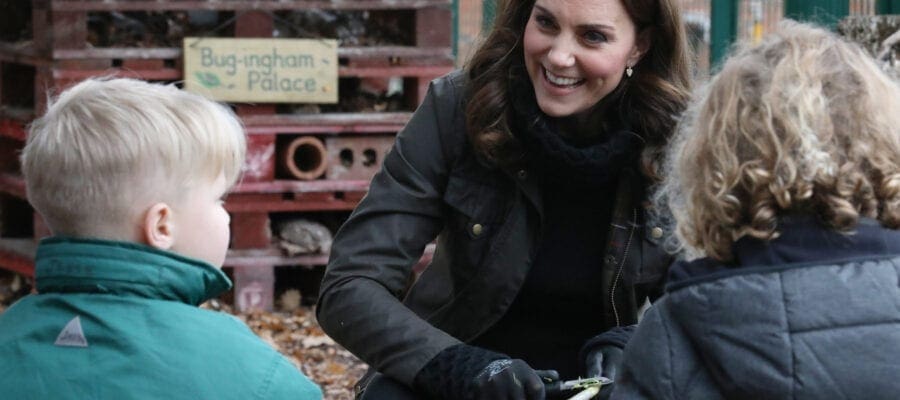With the Royal Family in the news, our exclusive subscribers-only first foray into the December Subs Club sees a duchess build bug hotels!
RHS School Gardening celebrates 10 years
The Duchess of Cambridge helps wildlife to thrive. Pictures: RHS/Luke MacGregor
The Duchess of Cambridge has visited Robin Hood Primary School in Kingston Vale, London to celebrate the tenth anniversary of the RHS Campaign for School Gardening. The informal, hands-on visit on November 29 saw her helping pupils to plant spring bulbs and build new bug hotels alongside the school’s existing ‘Bug-ingham Palace’.
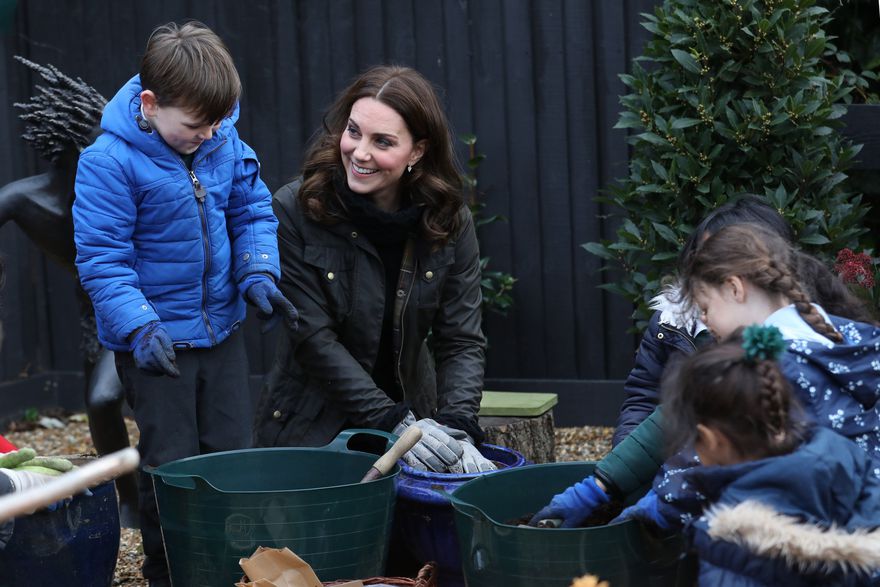
Pupils told the Duchess what they enjoyed about learning in a garden setting and she heard from teachers about its positive impact. Robin Hood Primary School is one of more than 34,000 schools and youth groups now signed up to the RHS campaign, which calls for all children to be given the chance to garden. Information and advice is provided online and is backed up by support from the RHS Education Team and Campaign for School Gardening Regional Advisors. Schools are provided with seeds, plant labels, stickers and posters, as well as ideas for practical activities and lesson plans.
With support from the RHS, Robin Hood Primary School has developed a progressive outdoor learning curriculum where pupils have access to a range of outdoor classrooms in a woodland setting. These give children the opportunity to explore the natural environment and take part in activities that bring learning to life.
Find out more at www.rhs.org.uk/schoolgardening
Glyphosate reapproved – but for just five years
Cancer concerns: weedkiller ingredient continues to divide opinion
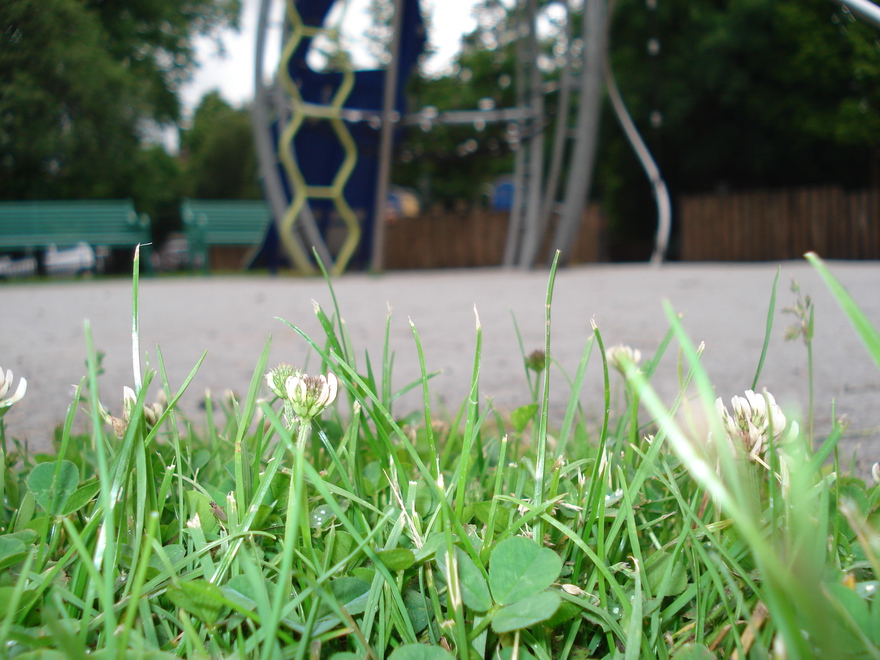
With just three weeks to go until its licence was due to expire, the EU has voted to reapprove glyphosate for another five years. The long-running dispute about the licence renewal was finally resolved when Germany, which had previously abstained, decided to vote in favour. The UK was also among those voting for renewal, while France and Italy voted against.
Glyphosate, the key ingredient in Roundup, the world’s bestselling weedkiller, was declared ‘probably carcinogenic to humans’ by the World Health Organisation’s cancer agency in 2015. This has been disputed by other international agencies, including the European Food Safety Authority (Efsa), but concerns continue to mount about its impact on humans, wildlife, soil and aquatic life. Traces of glyphosate are routinely found in foodstuffs, water, topsoil and human urine in amounts well above safe limits set by regulators.
A petition calling for a ban was signed by 1.3 million EU citizens, and environmental organisations have condemned the renewal decision. Greenpeace EU food policy director Franziska Achterberg said: “The people who are supposed to protect us from dangerous pesticides have failed to do their jobs and betrayed the trust Europeans place in them. The European Commission and most governments have chosen to ignore the warnings of independent scientists, the demands of the European Parliament and the petition signed by more than one million people calling for a glyphosate ban.”
However, the five-year reapproval falls short of the 15-year licence the European Commission originally sought, meaning that the whole process will start again in two years’ time, with a new safety assessment by Efsa. By that time, of course, the UK will (allegedly) have left the EU, and will need to take its own decision. Meanwhile, French President Emmanuel Macron has ordered a ban on the use of glyphosate in France ‘as soon as alternatives are found, and within three years at the latest’.
Read more at https://www.theguardian.com/environment/2017/nov/27/controversial-glyphosate-weedkiller-wins-new-five-year-lease-in-europe
Local science now online
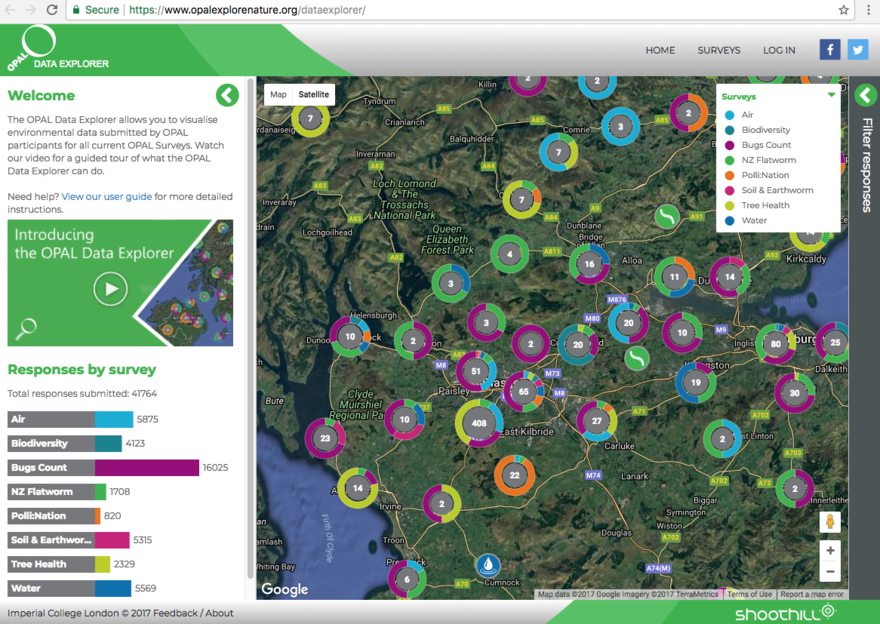
Accessible: OPAL Data Explorer
Gardeners can now access more than 41,000 local environmental records on the new OPAL Data Explorer. Survey data submitted by local citizen scientists can now be viewed online – so you can, for instance, find out whether the invasive New Zealand flatworm has spread to your area, or what lichens say about your local air quality.
OPAL survey data has already made a valuable contribution to science, but this is the first time that the wealth of information has been easily accessible online. The records available on the OPAL Data Explorer cover all eight of OPAL’s currently active surveys, with data for some going back as far as 2010. You can see what data has been collected near you, using the ‘my patch’ functionality to save your local town or region, find any OPAL survey responses that you’ve submitted in the past, see how your results compare to national averages, use filters to explore trends, and add further survey records to the database and see them appear on the map in just 15 minutes.
There’s a video guide to the OPAL Data Explorer at https://www.opalexplorenature.org/dataexplorer/videointro, and you can register to access the data at https://www.opalexplorenature.org/node/4718
‘Santa-approved’ Christmas trees
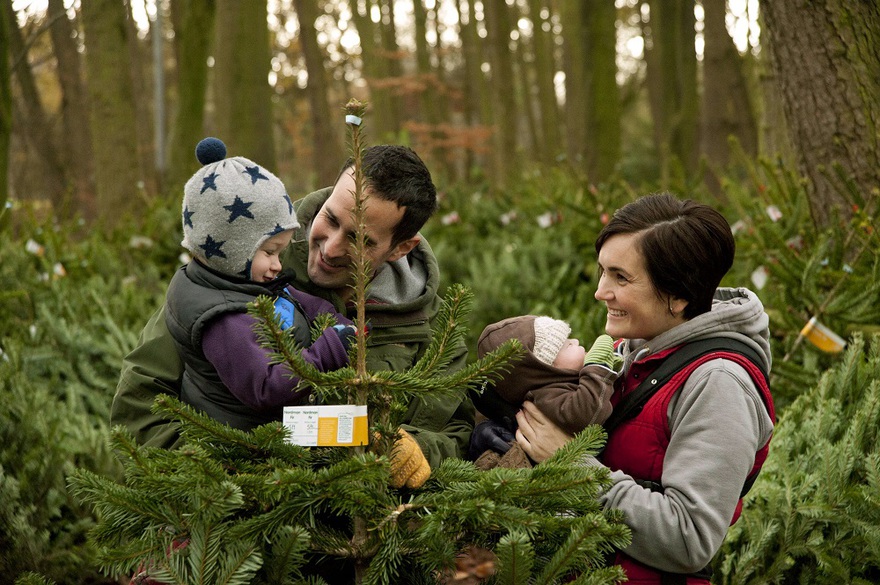
Sustainable: and you can choose your own tree! Picture: Forestry Commission England
If you want a real tree without the eco-anxieties, take a look at the Forestry Commission’s range of ‘100% Santa Approved Christmas Trees’. Its high-quality, sustainably grown British trees come in a choice of three varieties. For every tree harvested, a new one is planted – and with every purchase you’ll also get a free Christmas tree sapling to grow on at home, so your tree will be replaced twice over.
You can choose your tree in the forest – there are 17 Christmas tree sales centres in England, and another seven in Scotland. Forestry Commission staff can help you choose between a Norway spruce, Nordmann fir and lodgepole pine, and many sites are also offering children’s activities, a chance to meet Santa in his grotto, or festive workshops. Alternatively, you can order online and have your tree delivered to your door.
Find out more at https://www.forestry.gov.uk/christmas
Perfect for pollinators?
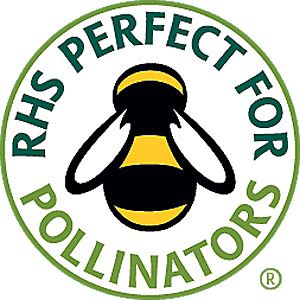
The RHS has responded to the recent criticism of its ‘Perfect for Pollinators’ logo, following research by Professor Dave Goulson which found that many garden centre plants bearing the logo contained pesticides at levels which could be toxic to pollinating insects. The RHS has defended its logo on the grounds that encouraging people to grow more pollinator-friendly plants is vital – but admits that the logo is no guarantee of how plants are grown.
It says: ‘The Perfect for Pollinators logo represents plants to grow in gardens that provide valuable resources for pollinators, but it cannot speak for the way in which each individual plant is grown. The RHS is a charity and cannot possibly police how hundreds of thousands of plants are grown within the horticultural trade, in the UK and across Europe, before the point of sale. We are, therefore, considering the future of the logo and whether we should withdraw it from the market.’
It goes on: ‘Ultimately we believe it is better for pollinators that gardens are crammed full of plants that are perfect for pollinators than with no plants or plants without flowers. However, we need more time to continue to explore options for the Perfect for Pollinators logo to make the best decision for our precious bees and other pollinators. We want to continue to promote the planting of flowering plants for bees and other pollinators and are working towards the best route to do this practically.’
It suggests that, in the meantime, concerned gardeners should buy from an organic nursery – there’s a list at https://www.rhs.org.uk/advice/profile?pid=960 along with other advice on pollinator-friendly gardening.
Read more at https://www.rhs.org.uk/science/conservation-biodiversity/wildlife/encourage-wildlife-to-your-garden/plants-for-pollinators

